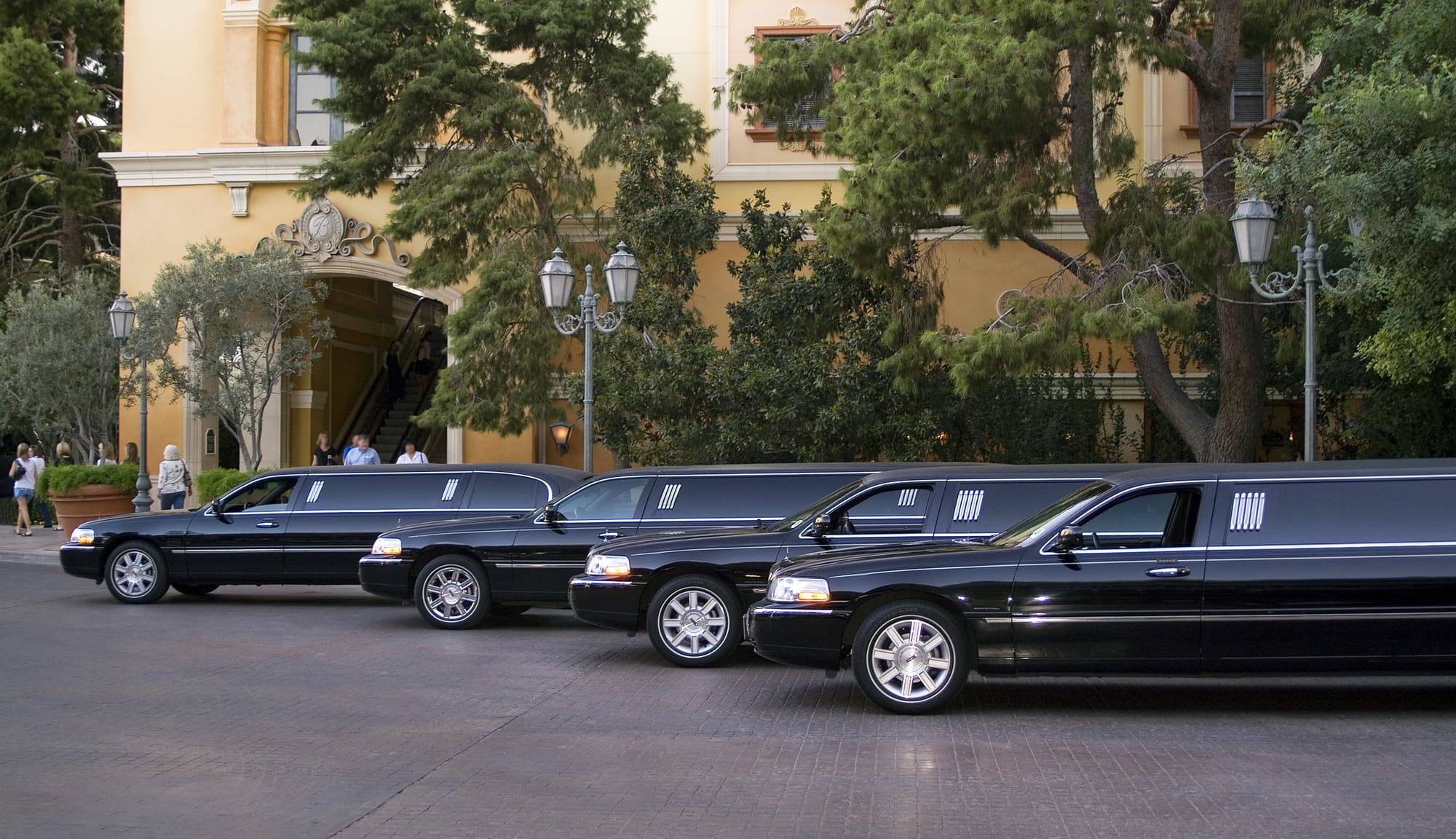Following the challenges that Uber, Lyft, and other transportation network companies (TNCs) and ridesharing platforms presented, then being hit with a long-term pandemic, 2020 has been a tough – yet possibly revolutionary – year for operators in the livery business.
We know that the luxury transportation industry is made up of hard-working entrepreneurs with an unmatched determination and dedication to their business. Those same characteristics will be what pulls you and your colleagues through the economic impact of the pandemic and will help you evolve and prepare for success when people bounce back to their normal activities.
Economic Impact of COVID-19 on Limo Companies
Back in January and February 2020, this year was promising to be a normal to lucrative year for the luxury transportation industry. But then the news of the pandemic hit in early March. Local and state governments began restricting travel and putting lockdown measures in place. People largely canceled their business and entertainment plans to help prevent the spread. Everything basically came to a screeching halt over the course of a few weeks.
Customers cancelled rides, events were cancelled, and many payments were deferred. There seemed to be no more need for party busses, limousines for weddings and proms, or airport transfers. Fleets big and small were brought to a standstill, drivers were sent home, and other employees were soon laid off as the cashflow slowed. As the pandemic continued, limousine companies in cities across the country reported an 80-85% loss over six months. That’s a dramatic drop for any industry but it was especially felt in transportation where profit margins were already super thin.
7 Tips for Surviving the Economic Downturn
Unfortunately, this severe disruption to business is difficult to plan for and impossible to predict. In fact, most of the industry did not have contingency plans in place addressing this type of extended emergency situation. So, what can your company do to survive?
One word, EVOLVE. Your company needs to evolve, and you must think as if your business is a start-up again. You must start to redefine the basics of your business again and translate them into a new era of this industry as we all evolve together.
Here are some basic aspects of your new evolution to think about.
- Redefine the Term ‘Lean Operations’
Some owners have had to triage the situation by deferring payments on some vehicles, reducing the number of vehicles on the road to save on insurance expenses, or monetizing extra cars by selling or leasing them out.
Another option is to reduce the reliance on in-house staff by hiring a professional insourcing partner like LimoLive24. In addition to reservation booking and upselling, LimoLive can help you with fleet management and driver dispatching. This type of service ensures business continuity – you won’t miss any calls while you’re catching up on sleep, dealing with a technical outage, or while your staff is working from home or out sick. Reservations are synced automatically with your livery software and we manage affiliate farm-ins and farm-outs.
The fact is, many businesses are seeing tremendous operational deficiencies from their in-house staff because of extended unemployment and some stimulus measures so LimoLive24 can help you create your new ‘virtual 24/365 office’ to process your calls, day or night, or on a 24-hour basis. The LimoLive24 professional team is trained in six different web-based reservation systems. We quote, book, modify, handle cancellations, and contact the drivers. LimoLive24 gives your company the look and feel of a very sophisticated livery operation with true 24/7 reservations and dispatch.
- Make Safety a Priority
The first priority should be the health and safety of your drivers, staff, and passengers. You can do this by implementing the following measures and policies:
- Avoid close contact with passengers whenever possible.
- Require staff and drivers to wear face masks and encourage passengers to wear masks.
- Offer cashless payment options.
- Provide hand sanitizer for passengers before they get in the vehicle.
- Clean the interiors and disinfect high-touch surface of the vehicles between rides.
- Consider utilizing an ozone treatment to sanitize the vehicle interiors.
- Don’t use recirculated air features inside the car, opt for ventilation the outside or roll down the windows to increase air circulation.
See more recommendations from the CDC on How to Keep Passengers & Drivers Safe and Disinfecting Transportation Vehicles.
- Advertise Services as a Safer Alternative
On the topic of safety, this is one area where chauffeured services have a competitive advantage over public transportation and ridesharing. Highlighting limos, sedans, and black cars as a ride service that decreases risk for travelers is an important distinction to make. As a private company, you are also able to oversee and ensure that mask-wearing and sanitization policies are followed better than shared ride or public transport operations.
“My smallest limo has 10 feet between the driver and the passengers, so we’re the only one, you can’t take; an Uber, you can’t take a cab, because you’re too close to them,” says Victor Jones, owner of Royal Limousine. “We can actually get you to your essential travel…and you’ll be safe the entire time.”
Some operators have already seen a shift toward private car bookings for those who have health concerns and want to avoid the exposure related to the shuttle, taxi, and Uber rides. “Some customers are asking for rides as far as the Carolinas in an effort to avoid planes, trains and buses, explained David Brown, president of Premiere Transportation Group.
Use your website and marketing efforts to tell customers about the protection measures that your company has put in place to protect passengers. This type of transparency will also work to bolster trust and loyalty among customers.
- Focus on Internal Affairs
Since we can’t control what is going on around us, we can our attention inward. Now is the time to take care of business, so to speak. Get set up with that accounting program that you haven’t had time to work with. Work on updating your books and doing visual inspections and some routine maintenance for your fleet. You can do housekeeping tasks like updating your livery software, contact lists, website, and any other channel that you use for lead generation.
- Look for Financial Relief
At this point, luxury transportation companies need to do whatever it takes to keep the music playing, even while the volume is low. Try contacting industry representatives and get involved in efforts to secure financial aid for drivers and fleet operators. For example, the following metro areas are already working to provide support:
Some fleet owners have also applied for Paycheck Protection Program (PPP) loans. This massive federal stimulus program aims to help small businesses guarantee payroll for their workers, and cover mortgage interest, rent, utilities, other debt expenses.
- Gear Up for Revenge Travel
People can only stay cooped up for so long. Experts in the tourism industry are seeing their clients getting more and more anxious to get out of town and head out of the country. ‘Revenge travel’ is expected to cause a boom in 2021, and this could present some great opportunities for luxury transportation operators.
Other types of travel and in-person events that were postponed in 2020 are also likely to come back. Domestic and international business travel, weddings, conferences, college activities, and sporting events will all start returning to normal over the next two years.
- Pivot to Offering Alternative Services
Instead of parking your fleet, maybe it could be used to offer an alternative service that could help essential workers or cater to social distancing restrictions.
Some cars in the industry have turned a 180° and started delivering packages, instead of people, in order to keep their business rolling. A limo company in Sacramento, About Time, LLC, got creative by advertising social social-distance dates including high-class takeout meals and a scenic ride. Rockstar Limo, which runs in 600 cities around the world, features a Family Fun Outing on their website; they invite families to watch a movie or head for the hiking trails in one of their stretch limos. Five Diamond Limousine in L.A. offered a socially distant graduation party option with decorations and a special playlist with limo service to their drive-thru ceremony.
Here are some other ideas on how to decrease losses that we’ve heard from operators:
- Partnering with a local company or university to provide a safer commute for their employees and corporate transit services.
- Driving patients to dialysis and chemotherapy appointments.
- Delivering groceries and prescriptions to people who are isolating, home-bound, or high-risk.
- Providing a black car date night experience for those looking to get out of the house.
- Special occasion experience for couples celebrating an anniversary, birthday, or holiday like New Year’s Eve.
- Offering coupons for future rides and events.
“Well, we’re going to have to retool, we’re going to have to reinvent our business,” said Maurice Brewster, CEO of Mosaic Global Transportation operating in and around San Francisco. “If it means I need to move people and things to places, then that’s what we’ll do in order to stay alive and survive.”
Related article: How to Hire Drivers Despite the Current Labor Shortage.
LimoLive24 – Always Supporting Luxury Transportation
Contact us to find out more about how LimoLive24 can help your company today and in the future, to decrease your costs and improve your revenues. Our average cost per month is usually 65% to 85% cheaper than hiring a minimum wage reservation clerk and eliminates the added costs of the state and local employment taxes. We employ highly skilled customer service representatives trained specifically in the livery industry to handle your client’s calls 24/365 in a professional, courteous, manner.
There is no long-term contract required and we always offer a 10-day free trial.





